 Collaboration with Norway
Collaboration with Norway
UK Research and Innovation (UKRI) and Research Council of Norway (RCN) have signed a Money Follows Cooperation (MFC) agreement to foster collaboration between researchers in both countries.
RCN and the participating UKRI research councils (AHRC, ESRC, EPSRC, MRC and NERC) have reciprocally opened their agreed national research funding opportunities to collaborative applications involving researchers from the other country to be funded as international co-investigators.
This enables eligible UK principal investigators to submit collaborative applications with co-investigators employed by Norwegian institutions. The inclusion of Norway co-investigators is possible in specific funding opportunities that do not expressly forbid international collaboration and do not provide alternative support for international co-investigators. They must fit the normal definition of a co-investigator on a research project, assisting the grant holder in the management and leadership of the project.
General conditions and budget will differ depending on the funding opportunity to which an application is being submitted.
You should refer to the specific participating research council’s guidance to applicants and funding opportunity guidance for further information on eligibility and application submission, for more details and conditions visit UKRI website.
Under this agreement, UK researchers are also able to take part in RCN funding opportunities as international co-investigators. UK researchers wishing to take part as international co-investigators in applications submitted to RCN should refer to RCN’s website for further information and contact details.
Collaboration with Switzerland
 I the meantime, on Thursday 10 November UK has signed major science co-operation agreement with Switzerland.
I the meantime, on Thursday 10 November UK has signed major science co-operation agreement with Switzerland.
According to the information available on Government’s web page, UK and Switzerland sign Memorandum of Understanding deepening the relationship between the two countries’ world-leading research and innovation communities.
The memorandum outlines the principles of the relationship, and specific forms of cooperation, including coordinated or joint initiatives, programmes or projects, meetings, workshops, conferences or symposia, exchange of information and documentation, mobility, visits and delegations, and strategy and coordination meetings.
The memorandum will encourage particular focus on cooperation in ‘deep science’ and ‘deep tech’, including life science, energy technology, AI and space.

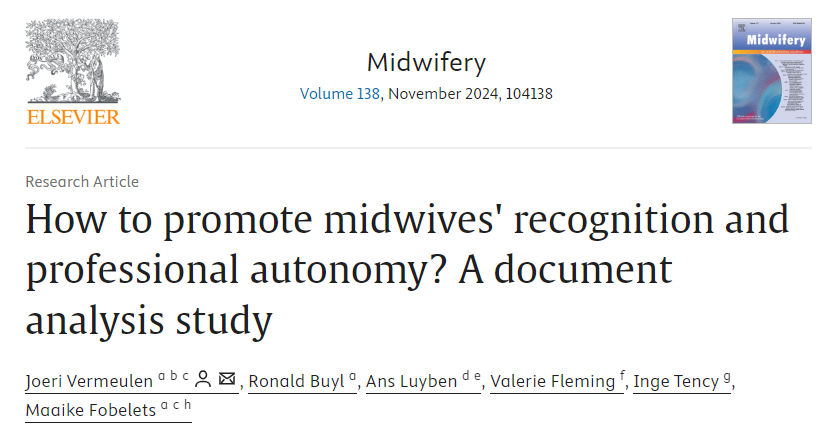 Congratulations to Dr. Ans Luyben on the publication of her latest midwifery article ‘How to promote midwives’ recognition and professional autonomy? A document analysis study’ [1]. This latest paper will appear in the forthcoming November issue of the international scientific journal Midwifery, published by Elsevier.
Congratulations to Dr. Ans Luyben on the publication of her latest midwifery article ‘How to promote midwives’ recognition and professional autonomy? A document analysis study’ [1]. This latest paper will appear in the forthcoming November issue of the international scientific journal Midwifery, published by Elsevier.  The paper identified challenges in Belgian midwives’ recognition and professional autonomy and provided recommendations to address them, emphasizing the importance of recognized authority in midwifery. Implementing these recommendations can positively impact midwives’ recognition and autonomy in Belgium as well as in other countries. Ans has long been affiliated with the Centre of Midwifery & Women’s Health (CMWH) as Visiting Faculty and she works in the Frauenzentrum (Centre for Women’s Health), Lindenhofgruppe, Bern, Switzerland.
The paper identified challenges in Belgian midwives’ recognition and professional autonomy and provided recommendations to address them, emphasizing the importance of recognized authority in midwifery. Implementing these recommendations can positively impact midwives’ recognition and autonomy in Belgium as well as in other countries. Ans has long been affiliated with the Centre of Midwifery & Women’s Health (CMWH) as Visiting Faculty and she works in the Frauenzentrum (Centre for Women’s Health), Lindenhofgruppe, Bern, Switzerland.


 Collaboration with Norway
Collaboration with Norway I the meantime, on Thursday 10 November UK has signed major science co-operation agreement with Switzerland.
I the meantime, on Thursday 10 November UK has signed major science co-operation agreement with Switzerland.
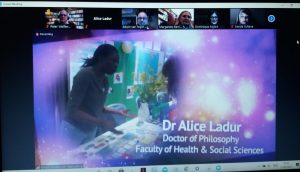
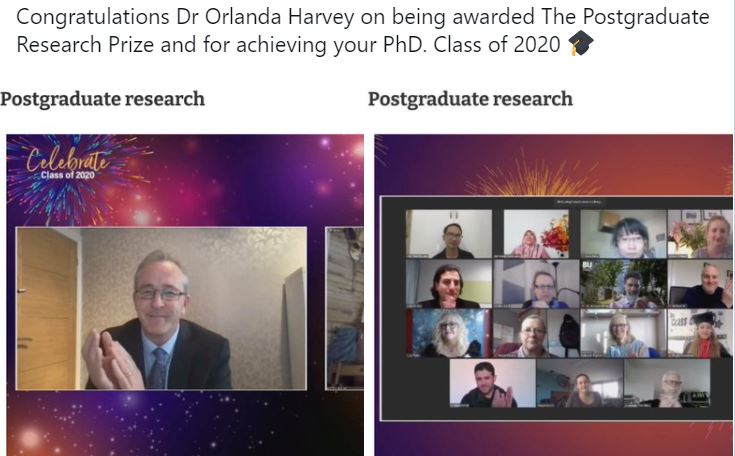

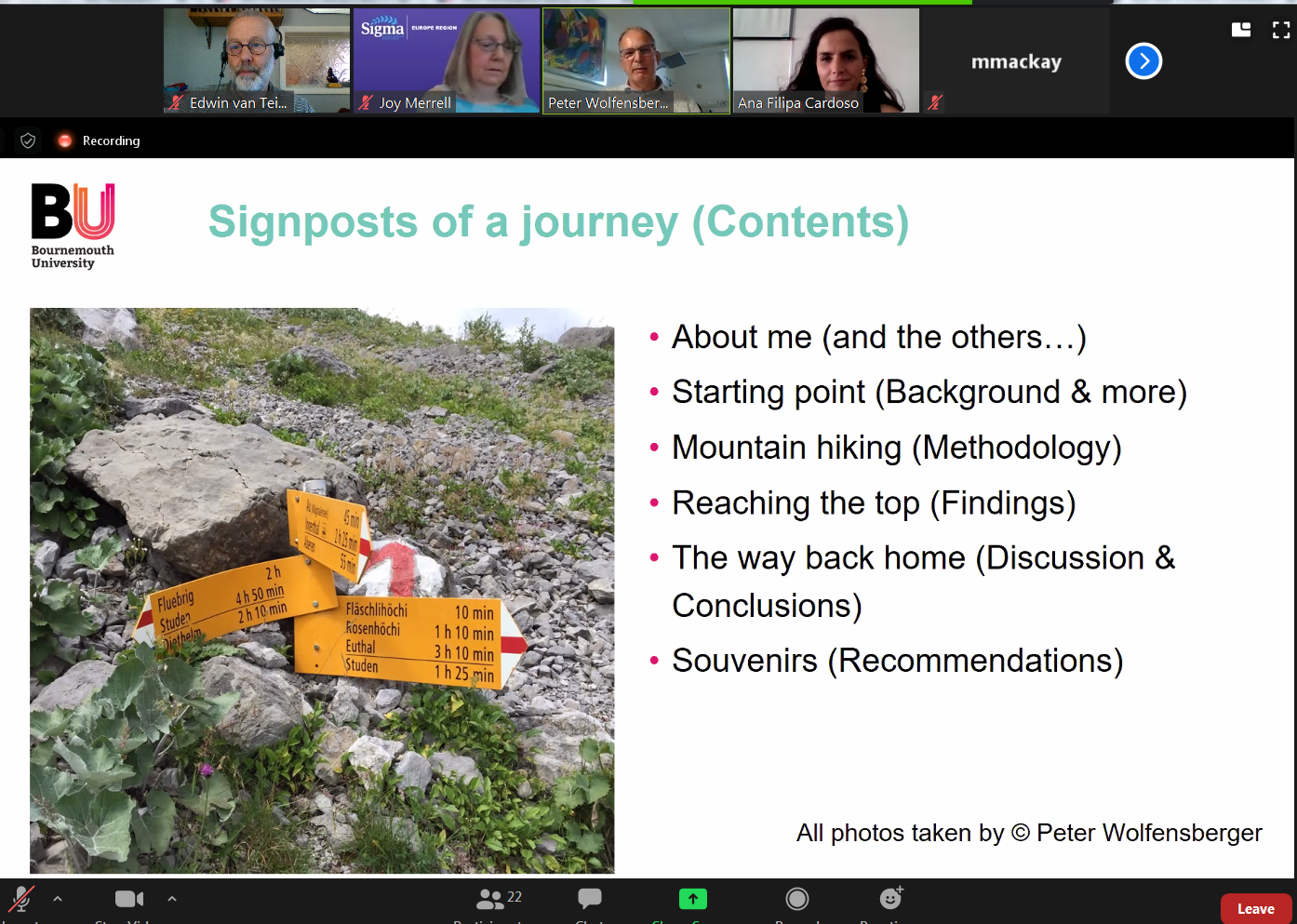

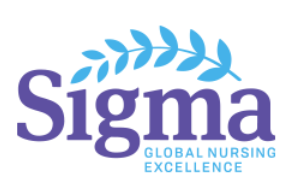





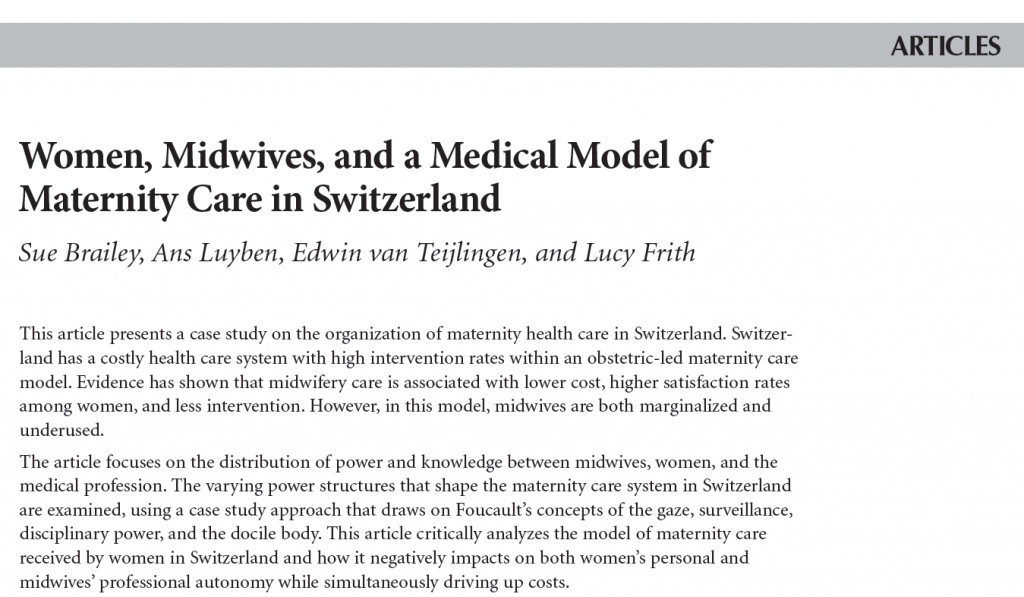











 3C Event: Research Culture, Community & Can you Guess Who? Friday 20 March 1-2pm
3C Event: Research Culture, Community & Can you Guess Who? Friday 20 March 1-2pm Beyond Academia: Exploring Career Options for Early Career Researchers – Online Workshop
Beyond Academia: Exploring Career Options for Early Career Researchers – Online Workshop UKCGE Recognised Research Supervision Programme: Deadline Approaching
UKCGE Recognised Research Supervision Programme: Deadline Approaching SPROUT: From Sustainable Research to Sustainable Research Lives
SPROUT: From Sustainable Research to Sustainable Research Lives BRIAN upgrade and new look
BRIAN upgrade and new look ECR Funding Open Call: Research Culture & Community Grant – Apply now
ECR Funding Open Call: Research Culture & Community Grant – Apply now ECR Funding Open Call: Research Culture & Community Grant – Application Deadline Friday 12 December
ECR Funding Open Call: Research Culture & Community Grant – Application Deadline Friday 12 December MSCA Postdoctoral Fellowships 2025 Call
MSCA Postdoctoral Fellowships 2025 Call ERC Advanced Grant 2025 Webinar
ERC Advanced Grant 2025 Webinar Update on UKRO services
Update on UKRO services European research project exploring use of ‘virtual twins’ to better manage metabolic associated fatty liver disease
European research project exploring use of ‘virtual twins’ to better manage metabolic associated fatty liver disease